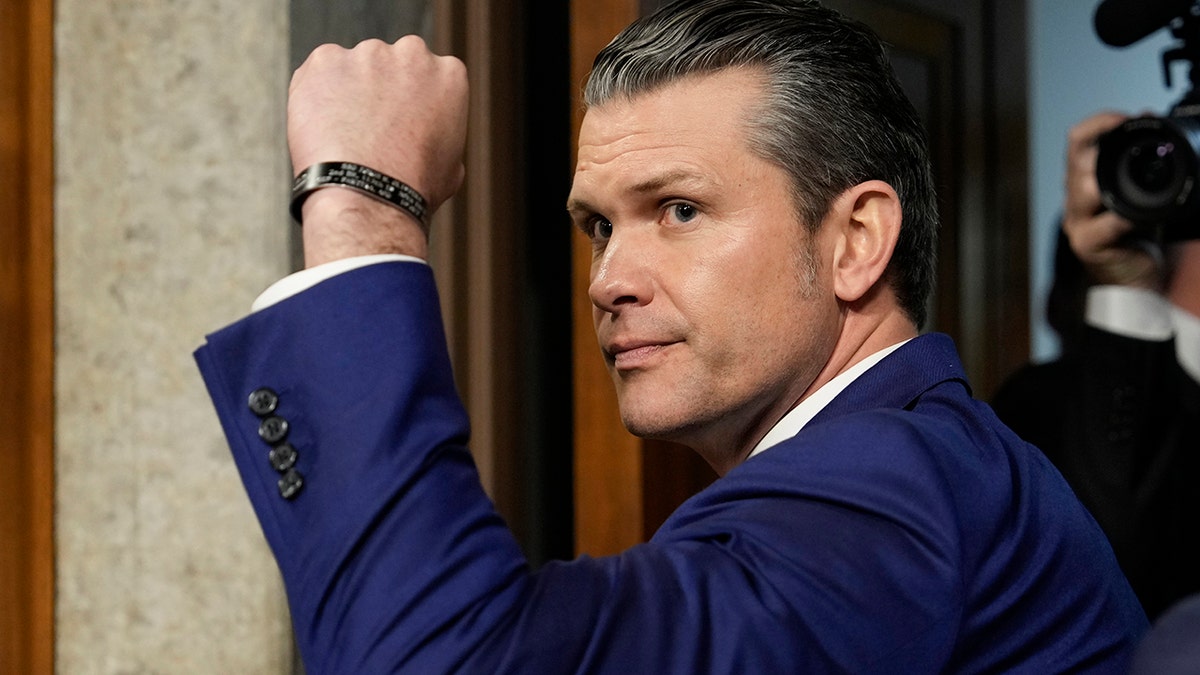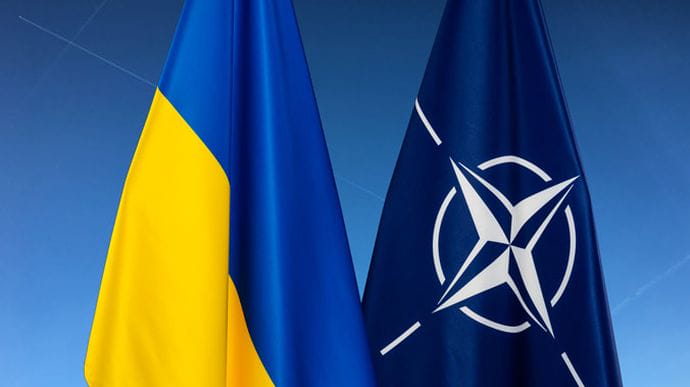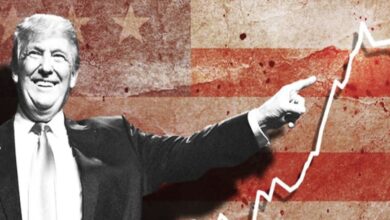Trump’s Controversial NATO Stand: Ukraine’s Membership Hopes In Ruins?
Former US President Donald Trump’s latest remarks on Ukraine’s NATO membership spark global debate, raising questions about NATO’s credibility.

Former US President Donald Trump stunned policy circles when he said that Ukraine’s hopes of joining the North Atlantic Treaty Organization must be abandoned. Such aspirations represent the primary factor behind the conflict with Russia. In a recent speech, Trump’s statement jolted the diplomatic community into an argument over NATO’s stance, the broader geopolitics of the strategy, and the future of Ukraine’s security.
Trump’s Position on Ukraine’s NATO Membership
During the campaign, Trump declared Ukraine “can forget about” joining NATO membership and blamed the reasons for the war on aggressive attempts by Ukraine to join NATO. He added, “I think that’s probably why the whole thing started.” By implying that NATO enlargement was the main provocation of the Russian invasion, Trump’s position copies Russia’s ageless argument that Western encroachment into the borders of the old Soviet Empire automatically threatens Moscow’s security.
This perspective marks a dramatic departure from the US foreign policy stance adopted under previous administrations, which supported Ukraine’s Euro-Atlantic integration. While Trump has expressed his desire to end the war between Ukraine and Russia swiftly, his remarks suggest a shift towards accommodating Russian security concerns, potentially at the expense of Ukraine’s sovereignty and its pro-Western trajectory.
Defense Secretary Hegseth’s Reinforcement
Reiterating Trump’s words, US Defense Secretary Pete Hegseth characterized Ukraine’s accession to NATO as “an unrealistic objective.” Appearing at NATO headquarters in Brussels, Hegseth asserted that this objective would “only extend the war and create more misery.” Hegseth supported a negotiated settlement led by “able European and non-European troops”, with US troops excluded from participating in any peacekeeping force in Ukraine.

Hegseth’s remarks underscore a broader strategy of reducing direct US military involvement in European security matters, urging European allies to assume greater responsibility. This position is in keeping with Trump’s long-standing distrust of NATO and belief that European nations must do more for their defence.
Implications for US Foreign Policy and NATO Relations
Trump’s remark is a dramatic shift in US foreign policy with multiple profound implications:
- Undermining NATO’s Credibility: NATO’s very premise is its open-door policy, whereby any qualifying European state would be up for consideration for membership. By saying that Ukraine “can forget” about the possibility of being a member of NATO, Trump is violating that premise and possibly undermining NATO’s credibility in the eyes of Eastern European states that are currently dependent on it for security guarantees.
- Potential Weakening of U.S.-European Relations: Several NATO members, particularly those in Eastern Europe, view Trump’s position as a dangerous concession to Russia. Countries like Poland and the Baltic states—Latvia, Lithuania, and Estonia—have long feared Russian aggression and strongly support Ukraine’s NATO aspirations. By indicating a readiness to impede Ukraine’s progress toward NATO, Trump imperils tensions with critical European allies.
- Strengthening Russia’s Strategic Position: If the United States formally adopts a policy of exclusion of Ukraine from NATO, it can embolden Russia to seek similar trade-offs elsewhere. Moscow has long resisted NATO expansion, and Trump’s position may justify the Kremlin’s aggressive behaviour in Ukraine. It may create a precedent where geopolitical pressure and military force are valuable means of preventing nations from joining Western institutions.
Ukraine’s Response and Regional Repercussions
Ukrainian President Volodymyr Zelenskyy has always supported joining NATO as the cornerstone of national security policy. In September 2022, Ukraine officially submitted a bid for swift membership within the NATO cluster to respond to the requirement of collective defence from Russian aggression.
However, Trump’s recent comments can force Ukraine to reassess its foreign policy goals. Kyiv can seek other security assurances, including bilateral defence treaties with some of the NATO members or closer collaboration with institutions like the European Union if it is impossible to join NATO. If becoming a NATO member is not feasible,

Secondly, Trump’s position might affect the domestic political situation in Ukraine. Pro-Western forces might find it challenging to balance their agenda with an American administration that is not willing to back Ukraine’s membership in NATO. At the same time, pro-Russian forces in Ukraine might use this policy change to call for a more neutral position abroad.
Broader Geopolitical Context
Trump’s policy is based on the long-existing Russian requirement that NATO stop extending to Russia’s borders. By accepting Russian security, the US tries to lower the possibilities of eyeball-to-eyeball confrontations and seek room for coordination on global security concerns.
But this approach is perilous on deep levels. It may justify the use of force by state actors to sway the foreign policy decisions of close neighbors. It also calls into question the defense pledges and security assurances made by the larger international community.
China’s Perspective
China has kept a strategic alliance with Russia and has been worried about NATO’s role in world affairs. Trump’s position regarding Ukraine’s accession to NATO may be seen as welcome by Beijing, as it is consistent with China’s overall resistance to Western military blocs. An American withdrawal from backing Ukraine’s NATO membership could also prompt China to stand more resolutely on Taiwan, claiming that US guarantees to its allies are untrustworthy.
European Union’s Role
With the US potentially stepping back from its traditional role as a security guarantor, the European Union may need to strengthen its defence capabilities. With the creation of the European Defense Fund and talks on creating a unified military force, the EU has already started to integrate its military further. Trump’s NATO strategy would facilitate these developments, making a more independent European defence policy a reality.

In the End
Trump’s declaration that Ukraine “can forget” aspiring to become a member of the North Atlantic community is a revolution in US diplomacy with broad implications for Eastern European security. While the policy will appease those on the right in the United States who demand a retreat from US military involvement abroad, it also has serious consequences for the credibility of NATO, continental security, and regional stability in the long haul.
Over time, the world will watch with interest how this policy will shape the resolution of the Ukrainian war and the post-war European security architecture. At last, the drama surrounding Ukraine’s accession to NATO reflects a wider race between Western democratic alliances and authoritarian powers seeking to recast the world order. Choices made in the coming months will decide the geostrategic order for decades.




